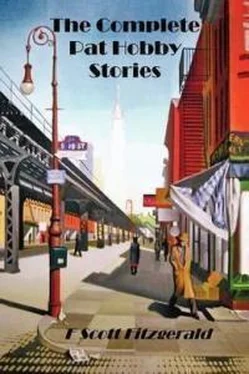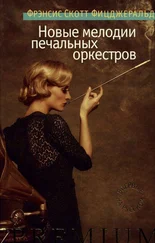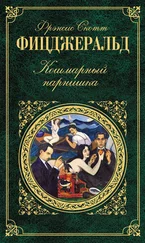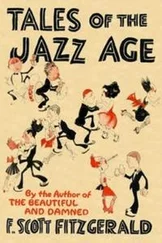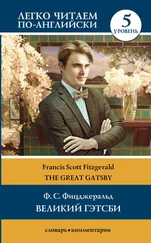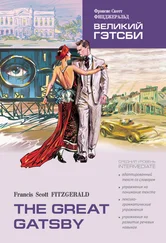'No soap,' said Jeff. 'Hell, you never paid me back what you borrowed last month.'
'But I got a job now,' lied Pat. 'This is just to tide me over. I start tomorrow.'
'If they don't give the job to Orson Welles,' said Jeff humorously.
Pat's eyes narrowed but he managed to utter a polite, borrower's laugh.
'Hold it,' said Jeff. 'You know I think you look like him?'
'Yeah.'
'Honest. Anyhow I could make you look like him. I could make you a beard that would be his double.'
'I wouldn't be his double for fifty grand.'
With his head on one side Jeff regarded Pat.
'I could,' he said. 'Come on in to my chair and let me see.'
'Like hell.'
'Come on. I'd like to try it. You haven't got anything to do. You don't work till tomorrow.'
'I don't want a beard.'
'It'll come off.'
'I don't want it.'
'It won't cost you anything. In fact I'll be paying YOU—I'll loan you the ten smackers if you'll let me make you a beard.'
Half an hour later Jeff looked at his completed work.
'It's perfect,' he said. 'Not only the beard but the eyes and everything.'
'All right. Now take it off,' said Pat moodily.
'What's the hurry? That's a fine muff. That's a work of art. We ought to put a camera on it. Too bad you're working tomorrow— they're using a dozen beards out on Sam Jones' set and one of them went to jail in a homo raid. I bet with that muff you could get the job.'
It was weeks since Pat had heard the word job and he could not himself say how he managed to exist and eat. Jeff saw the light in his eye.
'What say? Let me drive you out there just for fun,' pleaded Jeff. 'I'd like to see if Sam could tell it was a phony muff.'
'I'm a writer, not a ham.'
'Come on! Nobody would never know you back of that. And you'd draw another ten bucks.'
As they left the make–up department Jeff lingered behind a minute. On a strip of cardboard he crayoned the name Orson Welles in large block letters. And outside, without Pat's notice, he stuck it in the windshield of his car.
He did not go directly to the back lot. Instead he drove not too swiftly up the main studio street. In front of the administration building he stopped on the pretext that the engine was missing, and almost in no time a small but definitely interested crowd began to gather. But Jeff's plans did not include stopping anywhere long, so he hopped in and they started on a tour around the commissary.
'Where are we going?' demanded Pat.
He had already made one nervous attempt to tear the beard from him, but to his surprise it did not come away.
He complained of this to Jeff.
'Sure,' Jeff explained. 'That's made to last. You'll have to soak it off.'
The car paused momentarily at the door of the commissary. Pat saw blank eyes staring at him and he stared back at them blankly from the rear seat.
'You'd think I was the only beard on the lot,' he said gloomily.
'You can sympathize with Orson Welles.'
'To hell with him.'
This colloquy would have puzzled those without, to whom he was nothing less than the real McCoy.
Jeff drove on slowly up the street. Ahead of them a little group of men were walking—one of them, turning, saw the car and drew the attention of the others to it. Whereupon the most elderly member of the party threw up his arms in what appeared to be a defensive gesture, and plunged to the sidewalk as the car went past.
'My God, did you see that?' exclaimed Jeff. 'That was Mr Marcus.'
He came to a stop. An excited man ran up and put his head in the car window.
'Mr Welles, our Mr Marcus has had a heart attack. Can we use your car to get him to the infirmary?'
Pat stared. Then very quickly he opened the door on the other side and dashed from the car. Not even the beard could impede his streamlined flight. The policeman at the gate, not recognizing the incarnation, tried to have words with him but Pat shook him off with the ease of a triple–threat back and never paused till he reached Mario's bar.
Three extras with beards stood at the rail, and with relief Pat merged himself into their corporate whiskers. With a trembling hand he took the hard–earned ten dollar bill from his pocket.
'Set 'em up,' he cried hoarsely. 'Every muff has a drink on me.'
Pat Hobby's Secret
Esquire (June 1940)
Distress in Hollywood is endemic and always acute. Scarcely an executive but is being gnawed at by some insoluble problem and in a democratic way he will let you in on it, with no charge. The problem, be it one of health or of production, is faced courageously and with groans at from one to five thousand a week. That's how pictures are made.
'But this one has got me down,' said Mr Banizon, '—because how did the artillery shell get in the trunk of Claudette Colbert or Betty Field or whoever we decide to use? We got to explain it so the audience will believe it.'
He was in the office of Louie the studio bookie and his present audience also included Pat Hobby, venerable script–stooge of forty– nine. Mr Banizon did not expect a suggestion from either of them but he had been talking aloud to himself about the problem for a week now and was unable to stop.
'Who's your writer on it?' asked Louie.
'R. Parke Woll,' said Banizon indignantly. 'First I buy this opening from another writer, see. A grand notion but only a notion. Then I call in R. Parke Woll, the playwright, and we meet a couple of times and develop it. Then when we get the end in sight, his agent horns in and says he won't let Woll talk any more unless I give him a contract—eight weeks at $3,000! And all I need him for is one more day!'
The sum brought a glitter into Pat's old eyes. Ten years ago he had camped beatifically in range of such a salary—now he was lucky to get a few weeks at $250. His inflamed and burnt over talent had failed to produce a second growth.
'The worse part of it is that Woll told me the ending,' continued the producer.
'Then what are you waiting for?' demanded Pat. 'You don't need to pay him a cent.'
'I forgot it!' groaned Mr Banizon. 'Two phones were ringing at once in my office—one from a working director. And while I was talking Woll had to run along. Now I can't remember it and I can't get him back.'
Perversely Pat Hobby's sense of justice was with the producer, not the writer. Banizon had almost outsmarted Woll and then been cheated by a tough break. And now the playwright, with the insolence of an Eastern snob, was holding him up for twenty–four grand. What with the European market gone. What with the war.
'Now he's on a big bat,' said Banizon. 'I know because I got a man tailing him. It's enough to drive you nuts—here I got the whole story except the pay–off. What good is it to me like that?'
'If he's drunk maybe he'd spill it,' suggested Louie practically.
'Not to me,' said Mr Banizon. 'I thought of it but he would recognize my face.'
Having reached the end of his current blind alley, Mr Banizon picked a horse in the third and one in the seventh and prepared to depart.
'I got an idea,' said Pat.
Mr Banizon looked suspiciously at the red old eyes.
'I got no time to hear it now,' he said.
'I'm not selling anything,' Pat reassured him. 'I got a deal almost ready over at Paramount. But once I worked with this R. Parke Woll and maybe I could find what you want to know.'
He and Mr Banizon went out of the office together and walked slowly across the lot. An hour later, for an advance consideration of fifty dollars, Pat was employed to discover how a live artillery shell got into Claudette Colbert's trunk or Betty Field's trunk or whosoever's trunk it should be.
The swath which R. Parke Woll was now cutting through the City of the Angels would have attracted no special notice in the twenties; in the fearful forties it rang out like laughter in church. He was easy to follow: his absence had been requested from two hotels but he had settled down into a routine where he carried his sleeping quarters in his elbow. A small but alert band of rats and weasels were furnishing him moral support in his journey—a journey which Pat caught up with at two a.m. in Conk's Old Fashioned Bar.
Читать дальше
